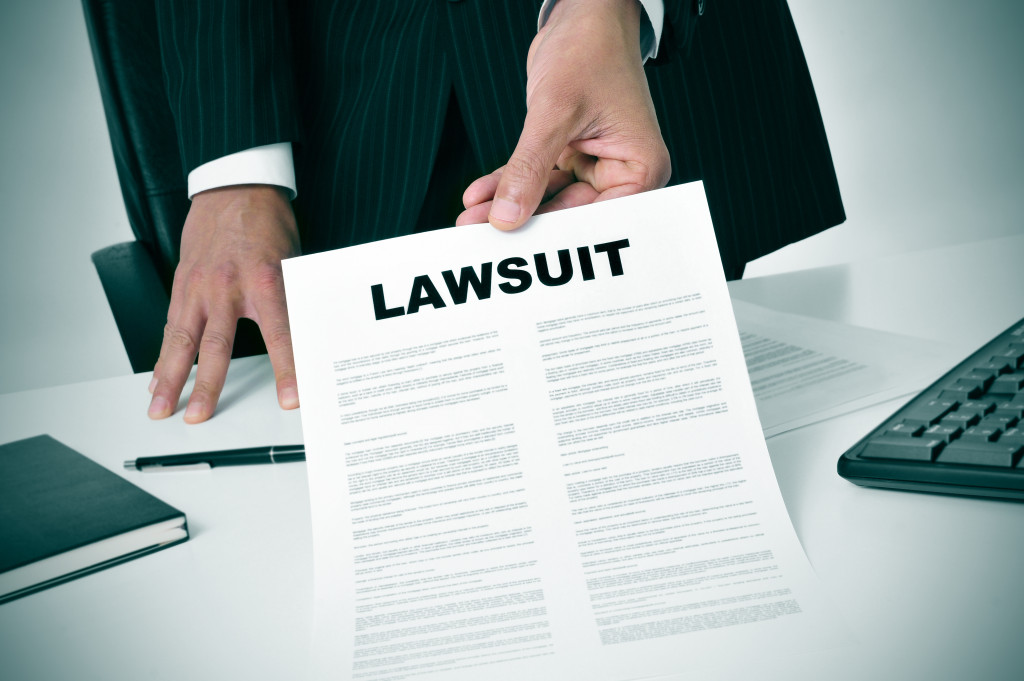Small business owners have a lot to worry about. Not only do they have to concern themselves with the day-to-day tasks of running a business, but they also have to worry about the potential for lawsuits. A single legal dispute can bankrupt a small company and cause years of financial hardship.
That’s why small business owners need to take steps to protect their businesses from potential lawsuits. Taking some simple precautions can help minimize the risk of any legal disputes arising and help shield your business from potential financial damages.
Here are a few tips to help defend your business against lawsuits:
Understand the Risks
The first step in protecting your business from lawsuits is understanding the risks. What types of activities could put your business at risk of being sued? Are you doing anything that could be considered negligent or reckless? Are you violating any laws or regulations? Once you have a good understanding of the risks, you can take steps to mitigate them.
You should also be aware of the potential consequences of a lawsuit. If you are found liable, you could be required to pay damages, including restitution, compensatory damages, punitive damages, and legal fees. A judgment against your business could also damage your reputation and make it difficult to obtain financing or insurance in the future.
Have Clear Terms and Conditions
If you offer any goods or services, ensure you have clear terms and conditions. Your terms and conditions should spell out exactly what your customers can expect from you. They should also include any exclusions or limitations on your liability. Having clear terms and conditions can help prevent disputes and give you a strong defense if you are sued.
Here are a few things to include in your terms and conditions:
- A disclaimer that limits your liability for damages
- A clause that requires customers to arbitrate any disputes
- A clause that limits the time frame in which customers can file a lawsuit
- A clause that disclaims any implied warranties
Make sure your terms and conditions are easily accessible to customers. You should include them on your website and on any printed materials you use, such as brochures or price lists. You should also require customers to agree to your terms and conditions before purchasing.

Hire the Best Team of Lawyers
No matter how cautious you are, there’s always a risk that your business could be sued. That’s why it’s important to have a good team of lawyers on your side. Your lawyers can help you navigate the legal system and protect your interests. They can also provide valuable advice on how to minimize your risk of being sued and what to do if you are sued.
When choosing a law firm, make sure you select one with experience handling cases like yours. You should also consider the size of the firm and its reputation. A large, well-known law firm like Duff Chadwick & Associates will have the resources and experience to effectively defend your business against lawsuits.
Protect Your Assets
Your business assets are one of your biggest liabilities. If you are sued and found liable, your business assets could be seized to pay damages. That’s why it’s important to take steps to protect your assets. There are a few ways you can do this:
Form a corporation or LLC: Forming a corporate entity can help separate your personal assets from your business assets. If you are sued, your personal assets will be protected if they are not held by the corporation or LLC.
Obtain liability insurance: Liability insurance can help cover the costs of a lawsuit, including damages, legal fees, and court costs. This type of insurance is particularly important for businesses with high risks of being sued.
Transfer assets to trust: You can transfer ownership of some of your business assets to a trust. This will help protect the assets from being seized if you are sued and found liable.
By taking these steps, you can help protect your business from potential lawsuits.
Practice Preventive Maintenance
Preventive maintenance is one of the best ways to avoid lawsuits. By regularly inspecting your premises and equipment, you can identify and fix any potential hazards before they cause an accident. You should also have a written preventive maintenance plan that outlines how and when you will inspect your premises and equipment.
This plan should be reviewed and updated on a regular basis. You should also train your employees on how to implement the plan. By taking these steps, you can help minimize the risk of accidents and injuries on your premises.
There you go! Following these tips can help protect your small business from potential lawsuits. If you do get sued, make sure you have a good team of lawyers on your side to help you navigate the legal system.

